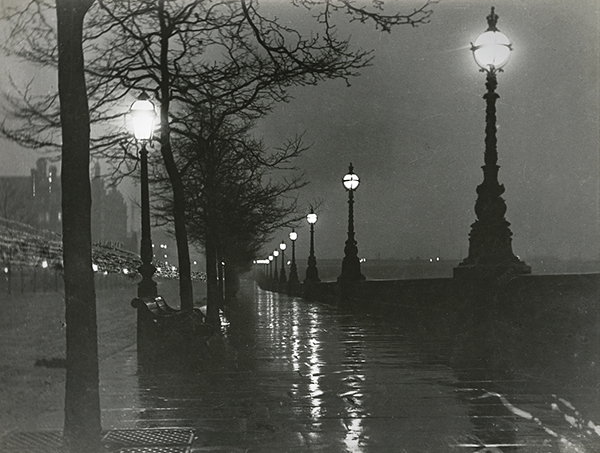Fulton was one of the incomprehensibly rich American tourists who invaded Paris two years after the twin calamities of the Franco-Prussian War and the fall of the Second Empire. In 1871, the city was ruined by Prussian bombardment and the Commune of Paris revolution, both responsible for destroying and damaging many public buildings. It is therefore surprising that Fulton never mentions the wounds Paris had sustained. In the two years that followed, Paris seems to have risen from the ashes to dazzle the foreigners as it did under the reign of Napoleon III.
The boulevards of Paris, extending for miles through all sections of the city, present a gay scene at night. The thousands of cafés, brilliant with gas-jets, have their tables out on the broad pavements, and from eight to ten o’clock in the evening it is difficult to obtain a seat in any of them. Ice-cream and coffee is the extent of the Parisian’s indulgence though a few add a little cognac to their coffee. They spend their summer evenings in promenading the boulevards and occasionally stopping for a cup of their favourite beverage.
The sidewalks of the boulevards are at least thirty-five feet wide, and in many prominent places, women are stationed along the curb-stones with chairs to rent, on which those who are tired may for a few centimes rest themselves and view the promenaders as they pass. The broad streets are also filled with carriages so that it is difficult to effect a crossing. They are required by law to have their lamps burning.
Strangers in the city who wish to view these gas-light scenes generally engage carriages and drive slowly through the different boulevards, and a vast number of carriages are constantly passing to a from the various places of amusement. Everybody seems happy and intent upon enjoyment.
[…] The stores are not only brilliantly lighted, but nearly all of them have rows of gas-lights on the outside, making the streets almost as light as day.
The display of the stores last night on the Boulevard des Capucines exceeded anything we had ever before seen even in Paris. […] The tasteful arrangement of the goods, the disposition of the lights, and the reflection in the side-glasses with which the shop-windows are always provided, presented a continuous spectacle of surpassing beauty. Ten years ago the Palais Royal was the great central attraction of Paris, but the boulevard stores have so greatly excelled these small establishments that it is now comparatively deserted at night. The hundreds of jewellers’ windows were sparkling with diamonds and precious stones, and even the fancy and dry-goods stores tried to excel one another in the effort to attract attention of the throngs of promenaders.
We walked through some of these central boulevards for nearly two hours, and everywhere the pavements were so filled that it was difficult for three to walk abreast without being continually jostled by the promenaders. This was also the case in the arcades running through the interior of the squares, where the display was similarly attractive. The best possible order was everywhere preserved and the gensdarmes, with their huge cavalry-swords, stood like statues on the corners of the streets, having no occasion to do more than remain quietly at their posts.
There being no cobble-stone pavements in Paris, the carriages and omnibuses make little or no noise as they glide along the smooth asphaltum, nor is there any dust for them to stir up to vex the eyes and the lungs of the people. The sweeping machines are going all night and until ten o’clock in the morning, making the streets as clean as they could be swept with a corn-broom by hand, and lest any dust should be left in the crevices, they are washed off with hose.
In short, Paris is grand. She has passed through her tribulations, and has again presented herself to the world more beautiful and attractive than ever. That the world is pleased is evident from the many thousands of strangers now lingering here to enjoy the brilliant spectacle.
